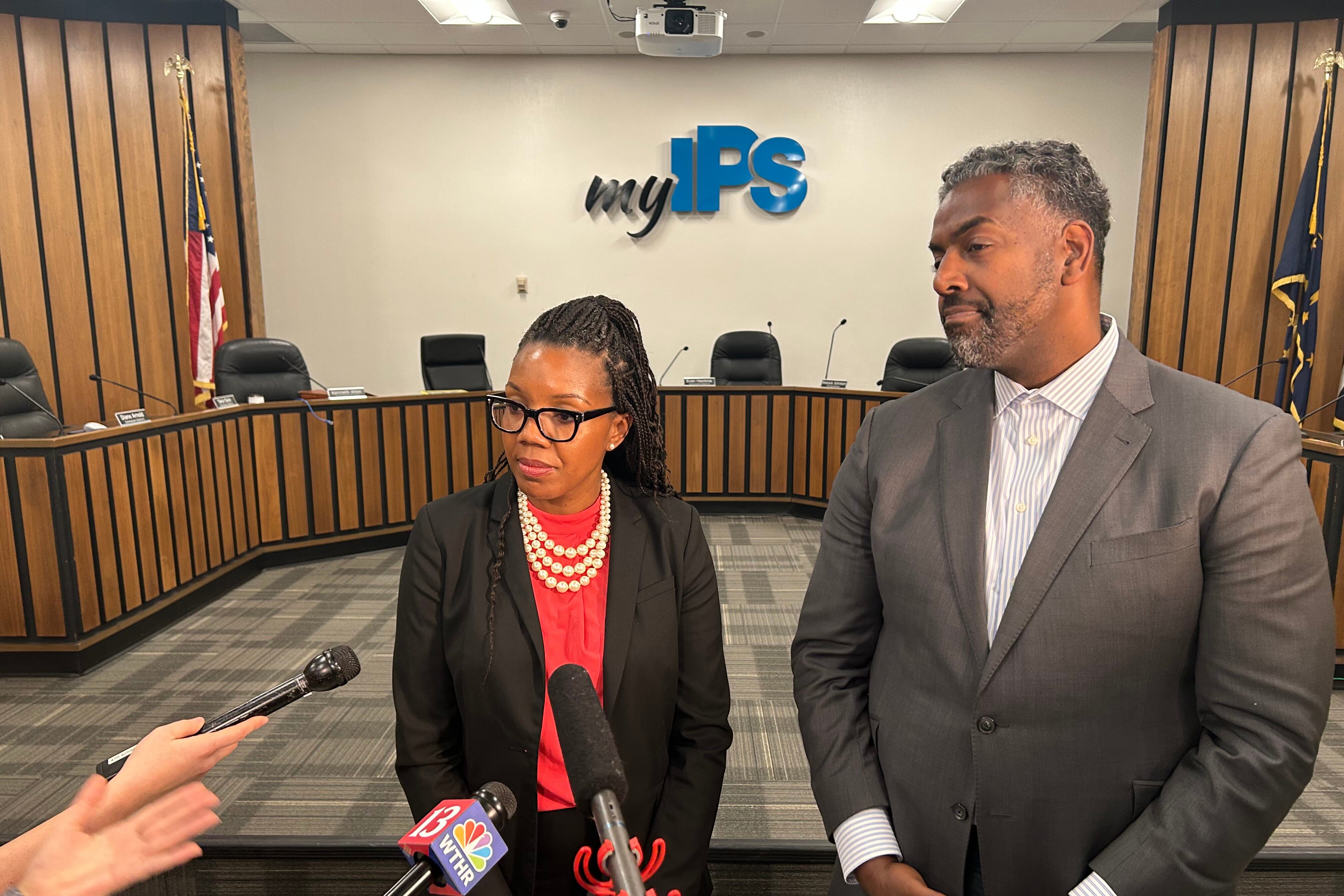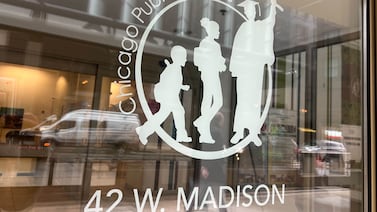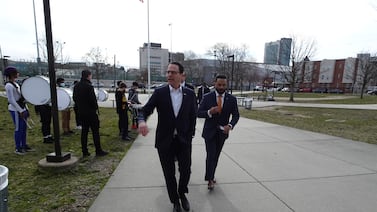Indianapolis Public Schools will implement only part of its massive Rebuilding Stronger overhaul after the school board failed to place an operating referendum on the upcoming May ballot.
In a speech released Friday, IPS Superintendent Aleesia Johnson called the postponement “an unfortunate delay.” In the meantime, the district will move forward with the changes meant to take place in 2023-24, including preschool expansion and the closure of schools.
Rebuilding Stronger aimed to expand popular academic offerings, such as visual arts programming and Montessori, to all students throughout the district as part of a push for equity. Rebuilding Stronger also reconfigures grades to provide more operational efficiency for the district, which for years has slowly lost students to charter schools as enrollment in traditional, non-innovation schools has declined from 27,988 in 2015-16 to 19,596 in 2022-23, according to district and state records.
The plan called for two ballot questions to increase taxes — one totaling $51.7 million annually for eight years to support operational expenses that would fund program expansion and teacher compensation, and another $410 million referendum for capital expenses that would fund building improvements and new buildings.
The capital referendum will still be on the May ballot.
But the school board didn’t vote on a referendum for operating expenses last month amid significant pushback from the charter school and business community. It’s unlikely the board would vote on the measure before the Feb. 17 deadline for placing it on the ballot.
Charter school proponents and powerful groups behind them — such as Stand for Children Indiana and the Mind Trust — called for more referendum funding for charters. The Indy Chamber also voiced concerns with the district’s plan, and said it could not support it at this time.
Other changes slated for the 2024-25 year are on hold as officials figure out next steps. Those changes include enacting four simplified enrollment zones and the expansion of academic programming such as International Baccalaureate throughout the district.
“It profoundly saddens me that there are those in our community who question if and what our children deserve,” Johnson said. “I’m left to wonder why, time and time again, IPS is asked to wait on behalf of our students — to be more creative with already strained resources.”
The $410 million referendum for capital expenses still planned for the May ballot will equate to an extra $3 per month for a median home value of $138,500, Johnson said Friday.
She still called on voters to support the capital referendum.
“This is a really big deal and I don’t want to lose sight of just how much good we will do with your generous support and investments,” she said.
In her video statement, Johnson said that changes slated for 2023-24 will still occur. She specifically mentioned:
- The closure and consolidation of several schools. Under the Rebuilding Stronger resolution the board passed in November, these schools are slated to close: Francis Bellamy PreK Center, Floro Torrence School 83, Paul Miller School 114, Raymond Brandes School 65, George Buck School 94, and Francis Parker Montessori School 56. Students at these schools will receive priority in the districtwide enrollment lottery when choosing new schools for that year, according to the resolution.
- The expansion of preschool from Francis Bellamy to additional schools across the district. The Rebuilding Stronger resolution lists six schools that will receive preschool in 2023-24: Carl Wilde School 79, Charles Fairbanks School 105, Brookside School 54, Daniel Webster School 46, James Garfield School 31, and James Russell Lowell School 51.
Other parts of Rebuilding Stronger slated to occur in 2023-24 are:
- The ending of two innovation agreements with SUPER School 19 and Urban Act Academy, a charter operator which took over Washington Irving School 14. Students at SUPER School 19, which is an innovation school but not operated by a charter, can choose to remain there or may be given priority in the districtwide enrollment lottery, according to the Rebuilding Stronger resolution the board passed in November. The district has said it is exploring an innovation agreement with a new school operator, the Near Eastside Innovation School Corporation, for Washington Irving School 14.
- The transformation of James Whitcomb Riley School 43 into a visual and performing arts school. The school will join the district’s Innovation Network, but will not be run by a charter operator.
Johnson said her team will discuss other components of the Rebuilding Stronger plan, particularly those scheduled for 2024-25, over the next few weeks.
“I will not see the vision that this community came together around diminished by the politics of zero-sum games and either-or thinking,” she said. “That’s a game that no one wins, and kids lose.”
Amelia Pak-Harvey covers Indianapolis and Marion County schools for Chalkbeat Indiana. Contact Amelia at apak-harvey@chalkbeat.org.







